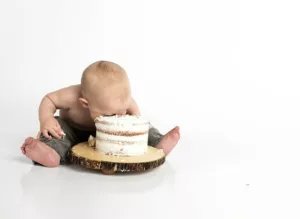You survived the first month. Both you and the baby got a passing grade on your baby’s first month of check up. Everything is going well. The confidence in taking care of the little one is slowly creeping up.
What must we observe in babies at 2 months of age?
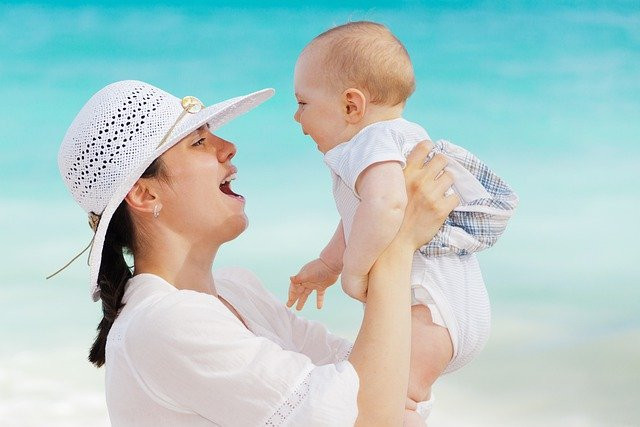
Cooing
The gurgling noise and the adorable cooing seem to start at this age. And if you observe closely, the baby would do those sounds looking at you, or even just by themselves left in the crib. It would seem interesting that babies at this age would love to hear themselves make all sorts of sounds.
Watching closely, the baby would try to interact with people around, particularly mom and dad.
Smiling
The beginning of purposeful smile starts. The baby is able to turn head towards where the sound or noise is coming from. Social development starts to develop. The baby would always look at parents when awake or playful. The toys that would help babies with social development are stuffed animals, mobiles, and dolls. Babies can begin to socialize with their toys. Watch them converse with their stuff animals or revolving mobile.

Sense of sight
Through their sense of sight, they learn very quickly to differentiate between objects and human beings, and between one object and human being and another. They begin to understand and interpret non-verbal cues.
When decorating your baby’s room, keep in mind that babies like sharp contrasts, and that designs are bold and bright, rather than soft and delicate. Black-and-white patterns are favored for the first six weeks or so, bright colors later.
A mobile should be no more than 6 to 16 inches over the baby’s face and should hung to one side or the other of the baby’s line of vision, rather than straight above. Most babies prefer to gaze toward the right, but observe your baby to discover a preference.
You can move a bright toy across baby’s line of vision to encourage tracking of moving objects.
Mirrors give baby and dynamic, transitional view, and most love them. Babies delight looking at faces close up.
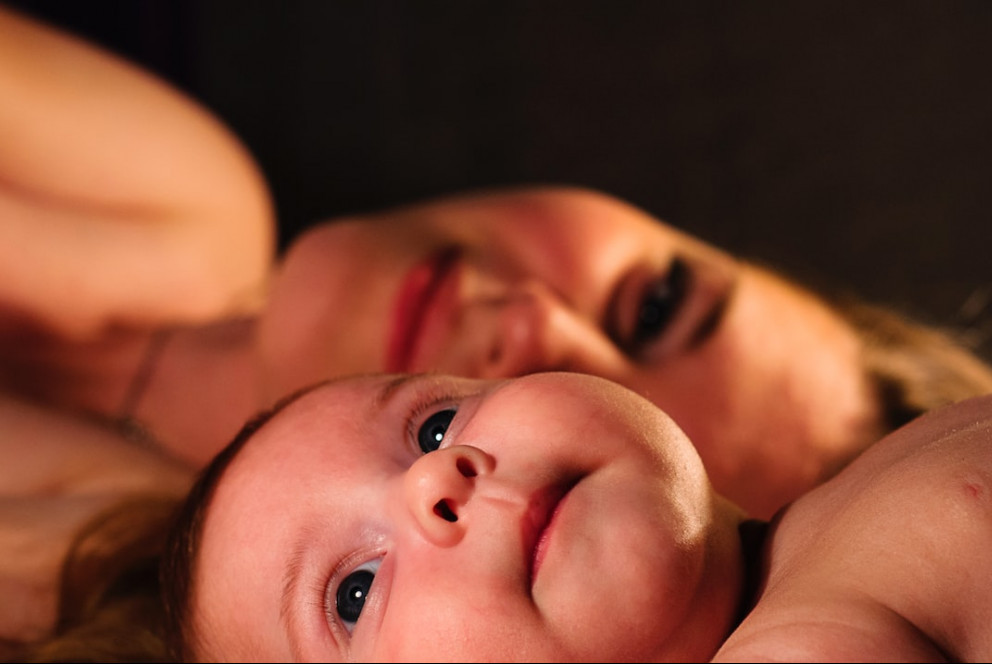
Sense of Hearing
Auditory stimulation can come from almost any source. It is through hearing that babies learn about language.
The human voice is the most significant type of sound in a baby’s life.
Many babies are captivated by a soft or lively background music, the whistle of the tea kettle, the loud noise of a blender or a vacuum, rattles or toys that make gentle sound.
Coordination between vision and hearing will develop as the baby learns to turn toward the direction to where the sound is coming from.
Avoid toys that make loud noises. Babies have delicate ears that can be damaged by loud resonance.
Infancy is the ideal time to start exposing your baby to classical music. Play classical music constantly. It provides a valuable mental stimulation and mental conditioning.
Sense of Touch
Touch is one of the baby’s valuable tool for exploring and learning about his world. You can provide various touching experiences for your baby. The softness of mommy’s touch as opposed to the coarseness of daddy, the smoothness of a teddy bear, and the significant people that takes care of the baby that provides a warm, comforting touch
Allow a baby to feel surfaces with different textures : terry towel, grandma’s fur coat, daddy;s wool sweater, the living room carpet, hard wooden block, smooth metal spoon, a silky pillow, etc.
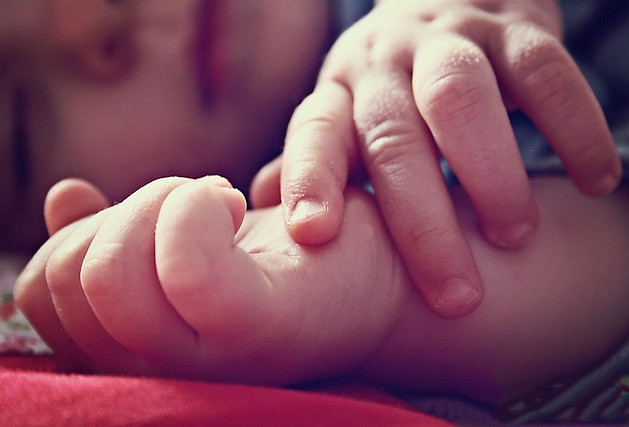
Small motor development
Right now, your baby’s hand movements are generally without purpose, but later on, those little hands will move with purpose and control. Allow your baby to explore his surroundings safely.
Babies will not grasp objects that are directly in front of them. Offer those objects from the side.
Provide a safe, “hands-on” experience : cradle gym, play crib with variety of parts for baby to grab or hold on, pull or poke; activity board that provide a wide range of hand movements, that eventually teach the concept of cause and effect.
Gross Motor Development
Provide opportunity for babies to maximize their activity by placing baby in a stomach, allowing the baby to lift head about 45 degree angles, or even able to hold h head steady when upright. Surprisingly, baby can roll over (one way) too. Encourage creeping by letting baby push off against your hands when lying belly down.
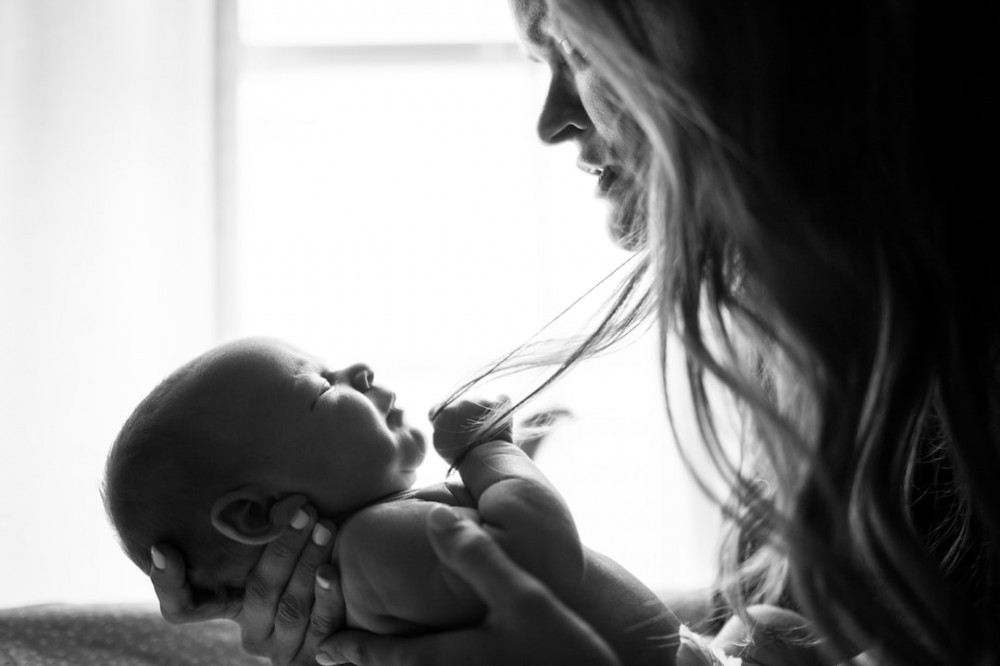
Intellectual Development
Encouraging the development of all the senses, as well as small and large motor control, will contribute to your baby’s intellectual growth.
Talk to your baby a lot, right from the beginning. Name the objects, animals and people your baby sees, point out body parts, and explain what you are doing.
Read nursery rhymes and simple stories, showing your baby the illustrations as you go along.
Expose your child to a variety of settings.
Whatever you do, don’t put yourself or your baby under pressure. The interaction and play is the thing, and it should be fun. The learning that comes with it is a bonus, though a really important one.
_____________________________________________________________________________________________________________
I want you to feel that you can reach out to me if ever you have questions or want to share ideas that you have related to care of babies, growing premature babies and the overall health issues pertaining to the care of babies OR just drop me a comment to just say “Hello” or “what’s up”.
All The Best,
Maria Teresa
BabiesBuddies.com

